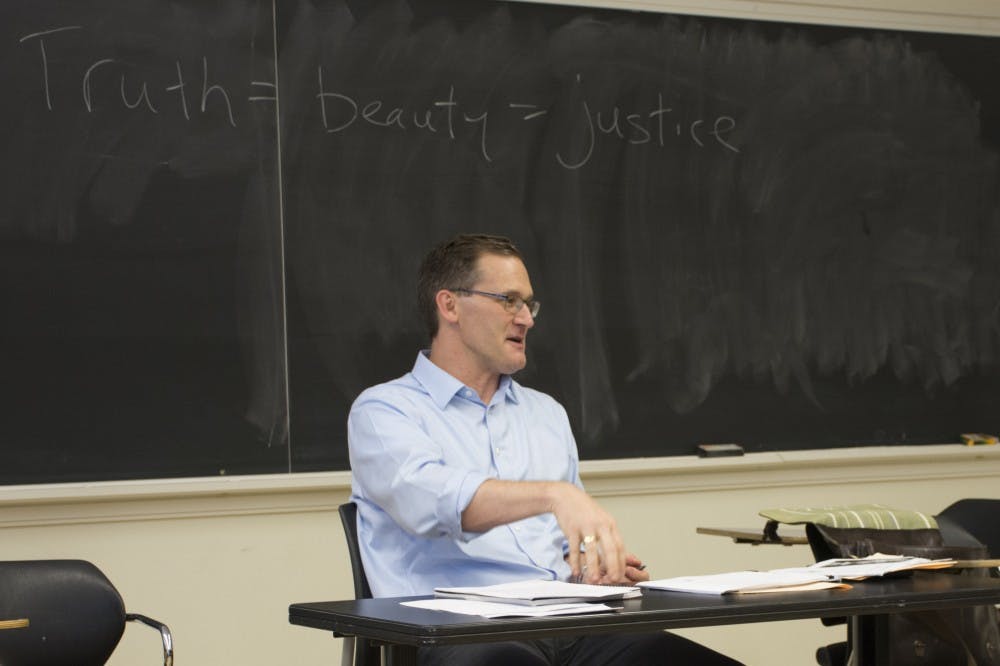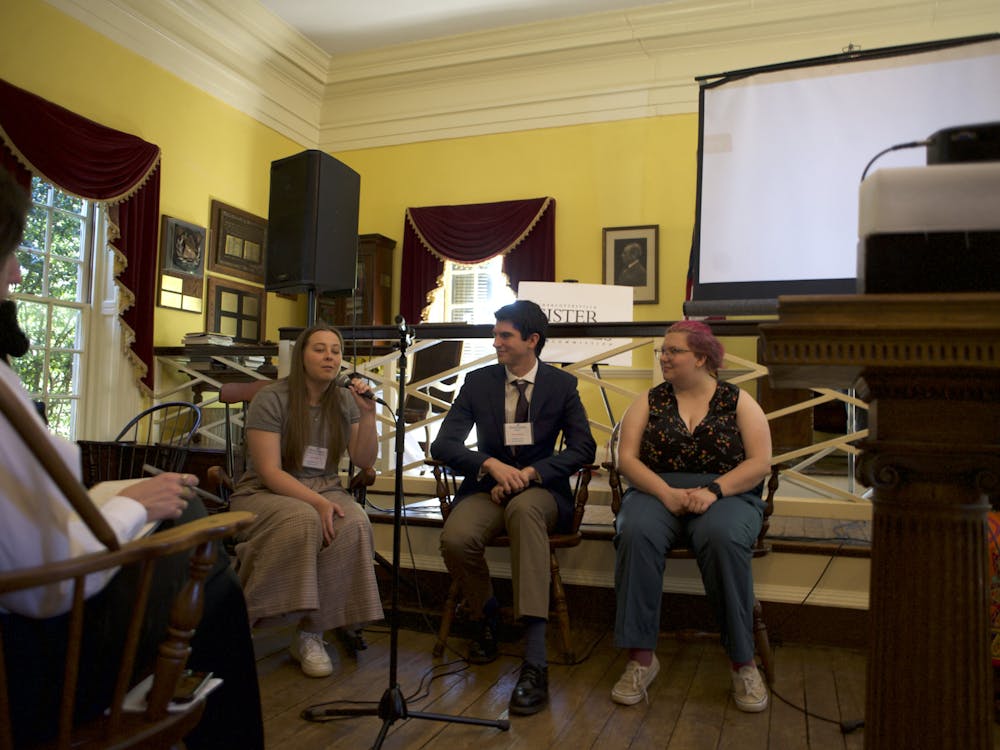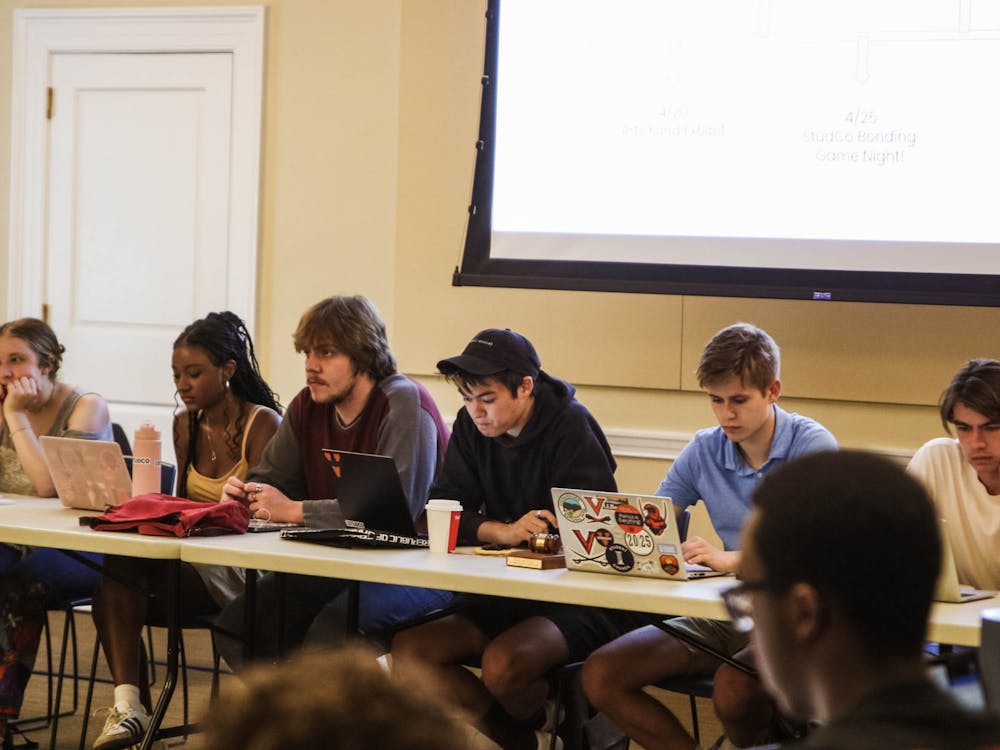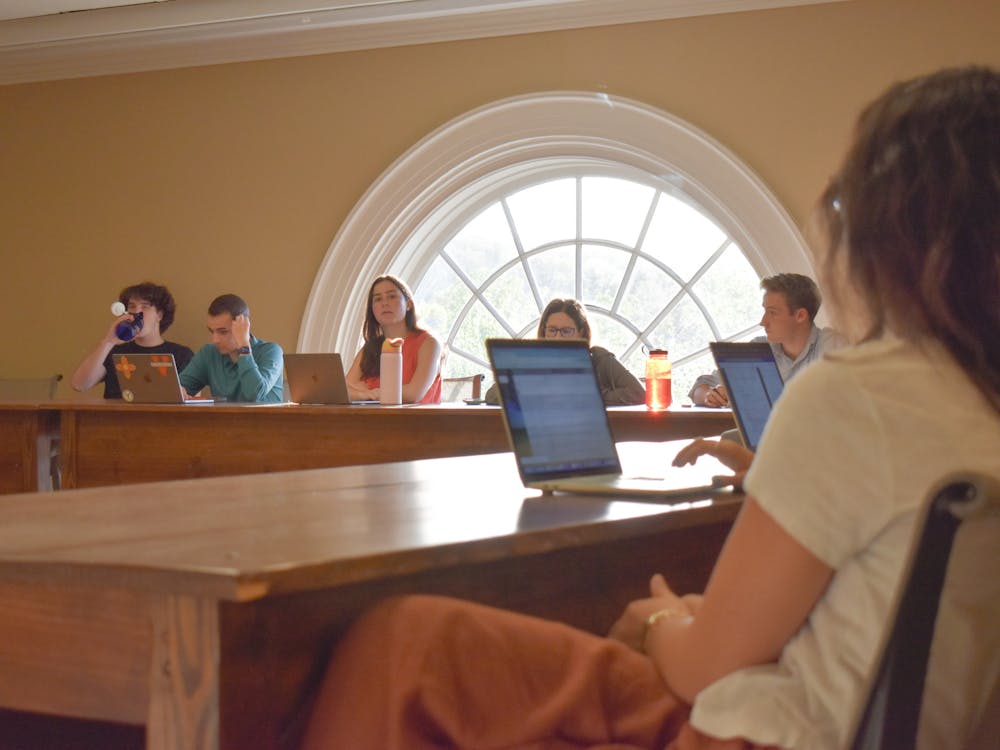“Plato was Aristotle's teacher, and Aristotle rebelled against Plato,” Charlottesville Mayor Mike Signer said as he addressed a group of 17 students gathered in New Cabell Hall on a Friday afternoon.
It was the third session of “Leadership, Statesmanship and Democracy” — a PLAP 5500 class taught this semester by Signer. The students had convened to hear Signer explain foundational theories of Western political thought.
The class is a graduate-level politics class that, according to Signer, is really about answering two central questions — what is the difference between statesmanship and leadership, and how does statesmanship fit into the practice of democracy?
“American democracy really depends on a certain kind of leadership occurring within it,” Signer said. “It turns out that there’s a very robust idea of leadership in America’s basic political design, and the class is about that.”
The students, including Sarah Kenny, a fourth-year College student and Student Council President, said they were looking forward to being taught by a professor with applicable experience in the world of politics.
“I’m really excited to learn from his experiences and get some insight into really what he’s grappling with as the mayor of a city in a lot of tumult right now,” Kenny said.
Signer was elected to City Council in 2015. Charlottesville has a “weak mayor” council-manager form of government in which the City Council appoints the city manager, who serves as the city’s chief executive and oversees day-to-day operations. Voters do not directly elect the mayor and City Council members choose the mayor from among themselves, who then presides over their meetings. Signer was selected to serve a two-year term as mayor in January 2016.
Daniel Niez, a Batten graduate student, said the class has been one of his favorite during his college career.
“I think just having the mayor, and for a political class, to get to talk about theory and apply it to modern politics … it’s something that is very cool because you have that ethos, that legitimacy of who you’re talking to,” Niez said.
Signer, his colleagues on City Council and City Manager Maurice Jones have recently been criticized for the what some have perceived as a lack of preparedness ahead of last month’s deadly white nationalist “Unite the Right” rally and associated protests. After a leaked memo revealed City Council had major concerns over how city staff responded to the event, and a subsequent response from Jones alleged that Signer had threatened to fire him and City Police Chief Al Thomas, Signer apologized for overstepping his role as mayor.
Signer said he hasn’t talked much about the events of Aug. 11 and 12 with his students thus far, but seemed open to the possibility of doing so in the future.
“I’m sure that it’ll come up during the course of the semester,” he said. “I think that those will be very interesting discussions.”
More generally, Signer said he’s found students appreciate the real-world experiences he is able to share with them.
“I think that having a professor who’s actively involved in government I think in the past has been very rewarding for the students,” he said. “I try and share the full range of experiences and insights that I’ve tried to gather through my career in class, and students seem to appreciate that a lot.”
Even in the first few weeks of the class, students said they had noticed how Signer’s background in politics added to the course.
“I think it’s very hard not to pull from your own experiences, especially in a class on statesmanship,” Niez said.
Kenny said Signer would use examples from his own life to show how the theories they’re studying can guide real-world political decision-making.
“He shared with us that he’s often going to use anecdotes from his own life to explain how some of the works that we’re reading have influenced him and his decisions,” she said. “There’s a huge blend of personal experience and the academic works that we’re reading, which I think is really endemic to any good class.”
But while Signer has plenty of insights of his own, students said the class doesn’t primarily revolve around his lecturing — rather, the small class size facilitates meaningful discussions among the students. Third-year College student Seth Wood said Signer has kept himself out of the limelight, letting students work out their interpretations of the readings on their own.
“I’ve been very pleased with the four or five hours I’ve been in class,” Wood said. “It’s not just talking points — people have done the readings, have taken time to think about this and reflect and actually listen to other people’s points of view.”
Niez said Signer occasionally steps in to guide the class toward important points in the readings, but the majority of class time is open to debate and discussion.
“Basically he’ll hand over the reins to us and sit back,” he said. “More or less, 80 to 90 percent of the class time is going to be us talking and discussing the text ourselves.”
Signer said he finds that format to be most conducive to learning.
“My experience is that the most profound learning comes when the students are highly personally engaged in the material, so I tend to try to steer classes toward a really robust discussion,” he said. “I really want to challenge the students to come to their own answers about what statesmanship is.”
While the class is heavy on political theory, students said there’s plenty of emphasis on practical applications, too. In the first few weeks, the class read Aristotle and Plato, and the syllabus for the rest of the semester includes writers such as James Madison, French diplomat Alexis de Tocqueville, political scientist Richard Neustadt and John F. Kennedy.
“I see it as historical-based but not historical in focus, the point isn’t just to look at what things happened in the past, or what people believed … It’s using historical context to define ethical points and leadership points that apply today,” Wood said.
Kenny agreed that the course centers around the practical aspects of statesmanship, not just the theoretical.
“There’s big focus in the course on practical application, he doesn’t just want us to look at what the state of democracy is today, he doesn’t want us to just look at theory,” she said. “He really wants us to internalize the idea of statesmanship and think about what that can mean in our own lives and for leaders around us.”
Signer said the learning experience actually goes both ways — being a professor, he said, goes hand in hand with his work as mayor.
“I get a lot of energy from students and the freshness of their perspectives and their ideas,” Signer said. “I think it’s really complementary.”





